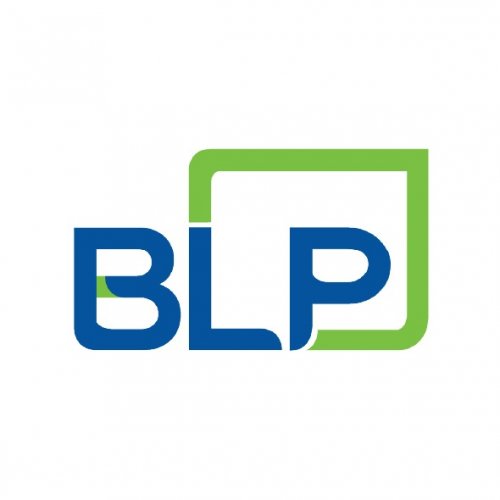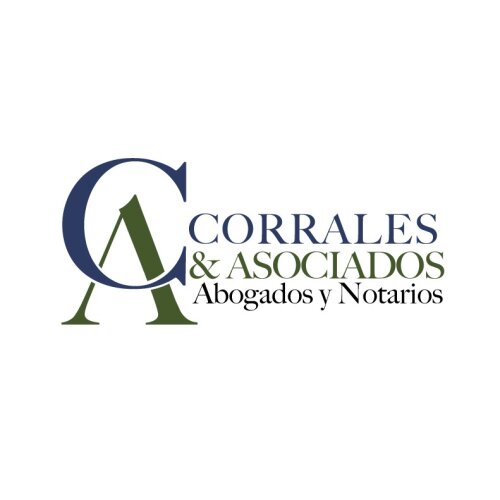Best Corporate & Commercial Lawyers in Nicaragua
Share your needs with us, get contacted by law firms.
Free. Takes 2 min.
Or refine your search by selecting a city:
List of the best lawyers in Nicaragua
About Corporate & Commercial Law in Nicaragua
Corporate and commercial law in Nicaragua governs the legal framework for businesses and commercial transactions within the country. This area of law covers the establishment, operation, regulation, and dissolution of companies, as well as the rights and obligations arising from commercial relationships. Nicaragua's legal system is based on civil law principles, and its corporate environment is largely influenced by its Commercial Code, General Law of Public Registries, Foreign Investment Law, and other relevant legislation. This field addresses everything from company formation and management to mergers, acquisitions, contracts, and dispute resolution.
Why You May Need a Lawyer
There are many scenarios where legal guidance is crucial for those involved in corporate or commercial activities in Nicaragua. You may need legal assistance if you are:
- Starting a new business or incorporating a company
- Drafting or negotiating commercial contracts or joint ventures
- Navigating regulatory requirements for your business sector
- Handling mergers, acquisitions, or restructuring of existing businesses
- Addressing disputes among shareholders or partners
- Dealing with labor law issues related to your business
- Complying with tax, customs, or foreign investment regulations
- Protecting your intellectual property assets
- Buying or selling commercial property or other business assets
- Pursuing or defending litigation arising out of a business relationship
Qualified lawyers help ensure compliance with Nicaraguan laws, avoid costly mistakes, and resolve disputes efficiently.
Local Laws Overview
Nicaragua’s corporate and commercial environment is shaped by several key laws and regulations:
- The Commercial Code outlines business forms, commercial acts, and company governance rules.
- The Civil Code impacts contracts and civil obligations.
- The Foreign Investment Law provides mechanisms and protections for foreign investors.
- The General Law of Public Registries details how companies must be registered and maintained.
- Special legislation applies to sectors such as banking, insurance, and telecommunications.
- Companies can operate as joint stock companies (sociedades anónimas), limited liability companies (sociedades de responsabilidad limitada), partnerships, and more.
- Shareholder and partnership agreements are critical to avoid conflicts.
- Other areas include tax regulations, labor law compliance, licensing, environmental requirements, and anti-money laundering standards.
Navigating this complex legal landscape requires up-to-date knowledge, especially due to ongoing changes in laws and administrative procedures.
Frequently Asked Questions
What are the main types of business entities in Nicaragua?
The most common forms are joint stock companies (sociedades anónimas or S.A.), limited liability companies (sociedades de responsabilidad limitada or S.R.L.), and partnerships. Each has different requirements for capital, structure, and liability.
How do I register a company in Nicaragua?
Company registration includes drafting the articles of incorporation, obtaining a tax identification number (RUC), registering with the Public Registry, and obtaining municipal business licenses. Foreign investors face additional requirements regarding documentation and legal representation.
Does Nicaragua have restrictions on foreign ownership?
Generally, foreign investors are allowed to fully own businesses in most sectors, but there are some restrictions in sectors related to national security or natural resources. It is important to review sector-specific laws before investing.
What are the ongoing compliance requirements for companies?
Companies must comply with annual filings, tax payments, registration updates, and bookkeeping standards. This includes submitting annual financial statements, holding regular shareholders meetings, and maintaining statutory records.
What taxes affect businesses in Nicaragua?
The main taxes are corporate income tax, value-added tax (IVA), municipal taxes, and payroll-related taxes. Rates and obligations depend on the business activity and structure.
Do I need a lawyer to draft contracts?
While not all contracts require a lawyer, legal advice is recommended to ensure compliance with Nicaraguan law, minimize risks, and clarify dispute resolution mechanisms. For complex or high-value transactions, legal involvement is particularly important.
How are commercial disputes resolved?
Disputes can be handled through negotiation, mediation, arbitration, or litigation. Arbitration is common for commercial matters, but the choice depends on contract terms and the specific issue.
Are labor laws strict for businesses?
Nicaragua has detailed labor regulations protecting employee rights. Businesses must comply with rules on working hours, minimum wage, social security, severance pay, and workplace safety.
What protections are available for intellectual property?
Trademarks, patents, and copyrights can be registered through the Nicaraguan Intellectual Property Office. Registration provides legal protection and is necessary to enforce rights against infringement.
Can a foreign company open a branch or subsidiary?
Yes, both branches and subsidiaries are permitted. The process involves registration, appointment of a legal representative, and compliance with local laws. Branches do not have separate legal identity, while subsidiaries are locally incorporated entities.
Additional Resources
For further information and support, consider the following resources:
- Nicaraguan Ministry of Development, Industry, and Commerce (MIFIC): Offers guidance on business regulations and commercial matters.
- Public Registry (Registro Público): Handles company registrations, amendments, and legal documentation.
- Dirección General de Ingresos (DGI): Manages tax registration and compliance for businesses.
- Centro de Mediación y Arbitraje de la Cámara de Comercio (CMA-CCN): Provides arbitration and mediation services for commercial disputes.
- Nicaraguan Intellectual Property Office: Assists with trademark, patent, and copyright matters.
- Local Chambers of Commerce: Networks such as the American Chamber of Commerce of Nicaragua (AMCHAM) offer business support and resources.
- Nicaraguan Bar Association (Colegio de Abogados): Can help you find accredited lawyers specialized in corporate and commercial matters.
Next Steps
If you require legal assistance in the field of corporate or commercial matters in Nicaragua, consider the following steps:
- Clearly define your legal needs, whether it is company formation, contract negotiation, or resolving a dispute.
- Gather all relevant documentation such as identification, company records, contracts, or official correspondence.
- Research and contact qualified lawyers or law firms with expertise in Nicaraguan corporate and commercial law.
- Request an initial consultation to discuss your case and receive preliminary advice on the best course of action.
- Review engagement terms, including fees, timelines, and confidentiality agreements before proceeding.
- Work closely with your legal counsel to ensure all compliance obligations are met and your interests are fully protected.
Engaging knowledgeable legal professionals helps you navigate the complexities of Nicaraguan business law and supports your long-term success in the local market.
Lawzana helps you find the best lawyers and law firms in Nicaragua through a curated and pre-screened list of qualified legal professionals. Our platform offers rankings and detailed profiles of attorneys and law firms, allowing you to compare based on practice areas, including Corporate & Commercial, experience, and client feedback.
Each profile includes a description of the firm's areas of practice, client reviews, team members and partners, year of establishment, spoken languages, office locations, contact information, social media presence, and any published articles or resources. Most firms on our platform speak English and are experienced in both local and international legal matters.
Get a quote from top-rated law firms in Nicaragua — quickly, securely, and without unnecessary hassle.
Disclaimer:
The information provided on this page is for general informational purposes only and does not constitute legal advice. While we strive to ensure the accuracy and relevance of the content, legal information may change over time, and interpretations of the law can vary. You should always consult with a qualified legal professional for advice specific to your situation.
We disclaim all liability for actions taken or not taken based on the content of this page. If you believe any information is incorrect or outdated, please contact us, and we will review and update it where appropriate.
Browse corporate & commercial law firms by service in Nicaragua
Nicaragua Attorneys in related practice areas.
Browse corporate & commercial law firms by city in Nicaragua
Refine your search by selecting a city.










